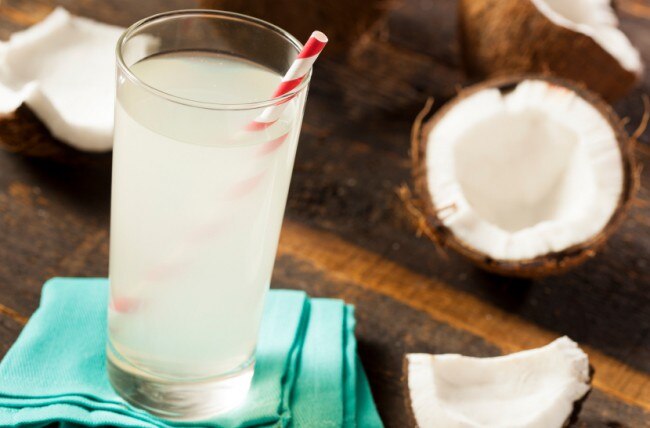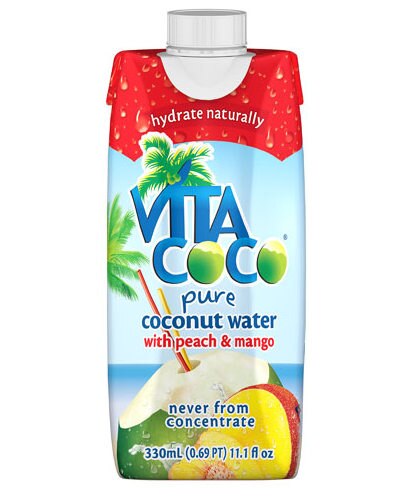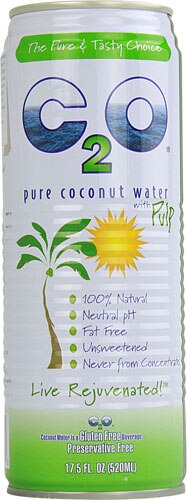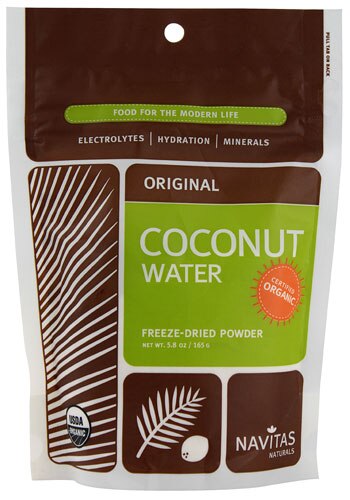Colorful cartons of coconut water are popping up everywhere, and everyone from competitive athletes to busy businesspeople are sipping this light, refreshing liquid instead of water, sports drinks and even soda. It’s exotic. It’s convenient. But is it really worth all the hype you hear in ads and from fans?
What is coconut water?
Crack open a can of coconut milk, and out pours a rich liquid with a distinct aroma (ahhh, paradise!) and creamy texture that makes irresistible smoothies, desserts and stir fry dishes. Coconut water, on the other hand, runs clear and thin. It has a nutty, slightly sweet taste—not the tropical flavor you’d expect—and a very different nutritional profile than coconut milk.
Unlike the creamier milk, which is pressed from the “meat” of mature coconuts and notably high in fat and calories, coconut water is collected from the center of young, green coconuts. It’s comprised mostly of water (about 95%) and is naturally fat free, calorie free and rich in essential nutrients.
Why drink it?
Uber popular in the fitness world, coconut water is such a hit because it’s tastier than plain water, gentler on your stomach than sugary sports drinks and, above all, it hydrates like nothing else. With five key electrolytes, including potassium, sodium, magnesium, calcium and phosphorus, it’s perfect during or after tough workouts to replenish stores of lost nutrients.
Coconut water is also:
- A good source of vitamin C, calcium and riboflavin
- A very good source of fiber, magnesium, potassium and manganese
- A source of amino acids, antioxidants and phytonutrients
- Very low in cholesterol
Get sippin’!
If you haven’t tried coconut water yet, you may be a little surprised by it’s taste, which isn’t much like…coconut. If you don’t like it plain, try adding coconut water to a smoothie or making homemade frozen pops with fresh fruit. You can also try coconut water:
Flavored
With pulp
Or in free-dried form (great for travel!)




